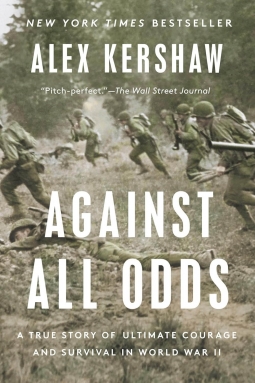- from Amamzon:
 When President Franklin Roosevelt declared war on December 8, 1941 - he was not the only one to do so; judging by the content of the attached article, and numerous others on this site, 100,000 other Americans did the same thing. This article is about the rapid growth of the United Sates military that took place between December of 1941 through December of 1942 - and boy, did it grow. During the closing days of the Okinawa campaign, Japanese infantry decided to treat the much-ballyhooed Bushido warrior code as if it was a plate of week-old sushi.
"The mass-surrenders were a circus for our troops. It became a race to see which outfit could take the most prisoners. And Major General Lemuel C. Shepard's Sixth Marine Division won the championship with 3,279 prisoners, while Major General Archibald V. Arnold's 7th Army Division was runner-up with 2,627."
More about the Battle of Okinawa can be read here. A short article by a respected military journalist of the time, Max Werner, on how severely Nazi Germany had been beaten.
Click here to read other articles from 1945. The American magazines and newspapers of late April and early May, 1945, were all about the end of the German Army and now its time to clobber the Japanese. The attached article, from May 6, addressed the subject that this would not be an easy task. If the Atom Bomb hadn't come along, the Pentagon believed the war would have gone on for another two or three years, and the Japanese were determined to fight until the end:
"The influential Tokyo paper Sangyo Kezei said editorially on April 30: 'Japan will fight on regardless of any sudden changes in Europe.'"
A similar article can be read here. Here is an interesting article from World War Two that goes into some detail explaining what is involved when a lieutenant colonel in an infantry regiment presents his plan of attack on a German town that is heavily defended. We hear him as he addresses the junior officers who will do the heavy lifting, and we get a sense of their concerns. Few reporters have ever paid any attention to this aspect of an assault. "Lightning warfare suggests initiative and spirit of the offensive; it carries with it the element of surprise, not so much in the happening as in the speed and force with which the attack is launched and delivered."
Click here to read about the nature of Total war.
Click here to read about a Kamikaze attack like no other...
|